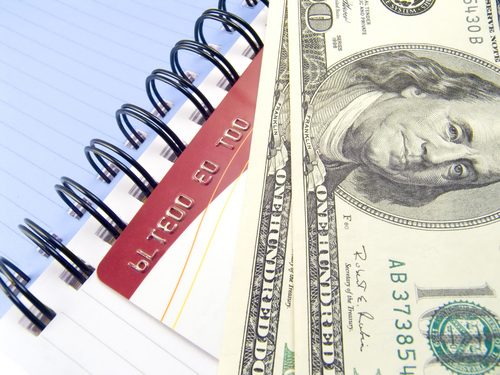Another year, another chance to get our lives in order – especially our money
lives. But the financial advice for the new year can be more than just “get out
of debt” or “build for your retirement.”
Sara Parker of Utah Central Credit Union has some ideas that take a fresh
look at achieving financial peace of mind.
For a lot of people, talking about getting your financial house in order is like
going to the dentist – necessary but there’s a high avoidance.
Even with our tough recession, one-third Americans said they were less likely
to make New Year’s resolutions about personal finances than a year ago.
That is troubling because it could lead to some bad habits.
But when you look at your money, we want you to think about some
resolutions that you might not have considered in the past — which can
contribute to those big items that will lead to financial security.
1. Enroll in an automatic savings plan. Did you know that the
most
effective way to build personal savings is to automatically transfer funds from
your paycheck to a savings account? Forcing ourselves to save actually starts
a good habit. If you deposit $815 into your savings account each month, the
account will be worth approximately $10,000 at the end of the year, plus
interest. Also, pay your bills online automatically. You’ll sleep better at night
knowing you did.
2. Stick to cash. Just so your viewers are clear, we are pro credit
and debit
cards when used appropriately. But a reputable study found that people
spend 12-18% more when using credit cards than when using cash. (Another
study found that people who paid cash at the grocery store were more
financially healthy than those who paid with plastic.) And McDonald’s found
that the average transaction rose from $4.50 to $7.00 when customers used
plastic instead of cash. So go green – as in greenbacks.
The other reason it’s a good idea to use cash is because it keeps us honest
with our money. We make better choices because we are forced to think twice
or three times about our purchases, especially if we have to break big bills
like a $50 bill. Bye-bye, impulse purchases!
3. Begin Using Personal Finance Software and read a financial book.
Knowledge is power. If we
walked outside and asked 10 people how much they spent last year on
books, restaurants, movie tickets or utilities, nine of them probably couldn’t
answer. With a few keystrokes, someone using personal finance software
such as Microsoft Money or Quicken, can know instantly. Also, if you want to
learn to cook, you read cookbooks. If you want to improve your finances,
bone up on what the experts are saying by reading their advice. It will take
the fear and mystery out of money.
4. Be more charitable. It might sound counter-intuitive, but a
Harvard
survey concluded that spending just $5 a day on someone else would make
you more happy than spending that money on yourself. One of the most
effective ways to realize the value of money is to give it away – anonymously
or to a charity. And if it goes to a charitable cause there’s always the tax
deduction! Give to a legitimate charity and pay less to Uncle Sam on April 15.
Walk into a Starbucks and anonymously pay for the other customers in line. If
you pass a child in Wal-Mart staring at a new video game, take out your
wallet and buy it for them. In both cases, the recipients are sure to remember
your kindness for years to come. It is a powerful and effective way to change
other people’s lives for the better while giving you a better sense of freedom
financially. Suddenly, you realize just how much promise $20 contains.
5. Review your credit report. Take steps to repair any negative
activity.
You are entitled to three free credit reports each year, so there’s no excuse
for not reviewing them. Errors are common. Free reports can be ordered at
AnnualCreditReport.com. Realize that a poor credit report cold adversely
affect the amount you are able to save and could result in paying higher
interest rates on loans.
There are dozens of things we could be doing to improve our financial well
being. One other suggestion was getting a “money buddy” – someone who
can knock some sense into you when you feel the impulse to spend or when
you are ignoring your bills. It might be your best friend, sibling, or parent.
Relay your goals to this person so that he or she can help remind you of
them when your judgment gets cloudy.
Some others that are fundamental include opening an IRA, reviewing your life
insurance and disability insurance needs, putting away a 20% for a down
payment on a home, and closing unnecessary accounts.















Add comment